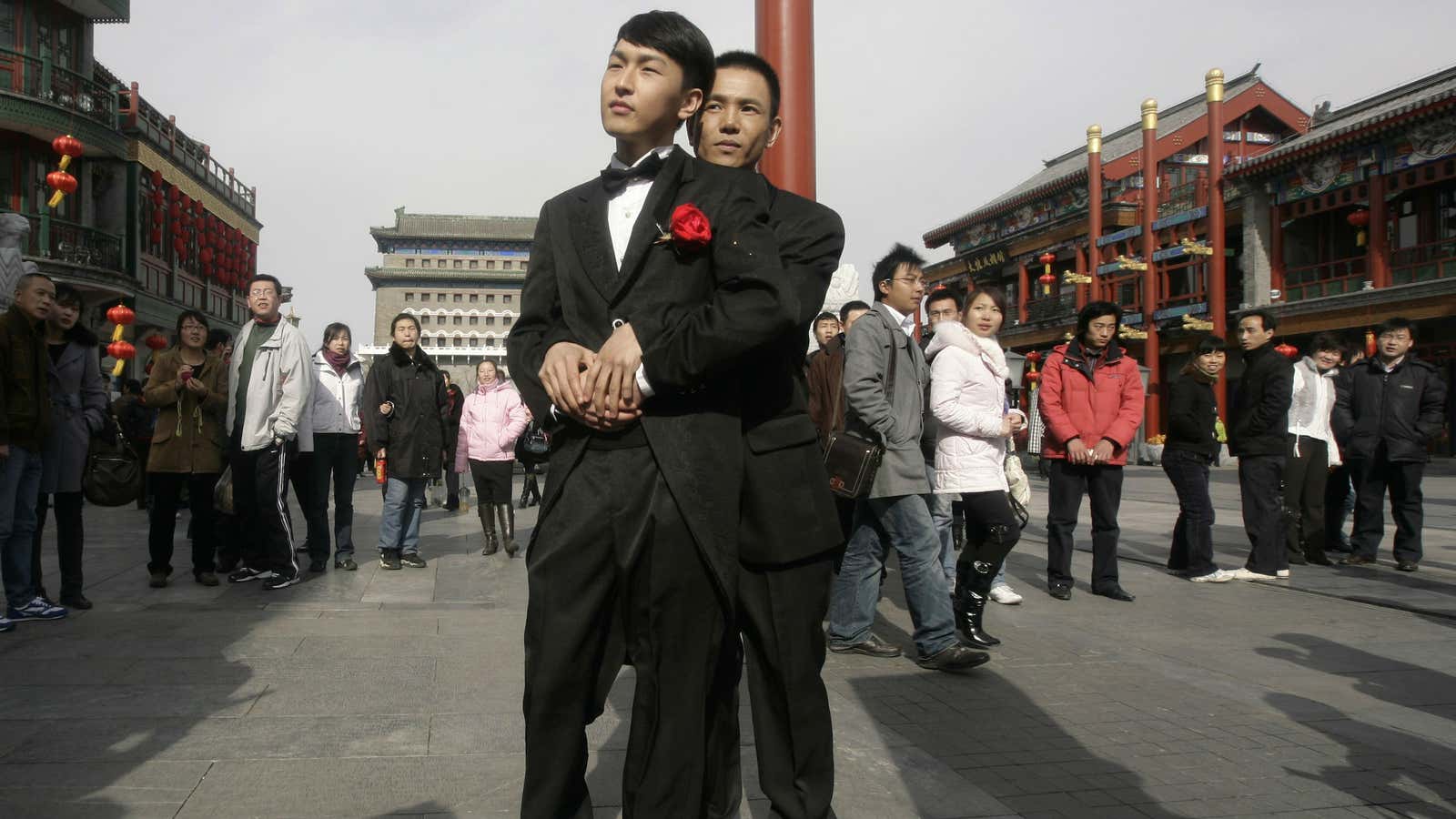Yesterday (Aug. 13) marked Chinese Valentine’s Day, also known as the Qixi Festival. Though it’s a traditional holiday that celebrates romance dating back to the Han dynasty, it’s now becoming a rallying point for China’s small but growing gay-rights movement. Yesterday, a gay couple kissing in Beijing was greeted by cheers. A video of a 90-year-old grandmother (paywall) in Fuzhou province explaining her support of her gay 28-year-old grandson has been circulating the internet. State media Xinhua declared in a headline, “Chinese Valentine’s, our gay day!” (Xinhua’s Chinese edition led with a more toned down headline: “More Chinese guys openly celebrate Qixi“)
There have been notable changes in legal and social attitudes towards gay people in China, enough that some China watchers are optimistic that a real generational shift is taking place. Homosexuality was seen as a psychological disorder not only during Mao Zedong’s era but throughout China’s era of reform and opening in the 1980s. Not until 1997 did China get rid of the crime of “hooliganism”, under which homosexuality was included. In 2001, homosexuality was taken off the official list of psychiatric disorders.
In 2008, an LGBT center opened in Beijing on Qixi day. On Qixi the following year, the China Daily published photos of gay couples “marrying” near Tiananmen Square (same-sex marriage isn’t legal in China), kicking off a trend of symbolic public ceremonies. As of July, foreign same-sex couples are allowed to apply for dependent residence permits, a law that could make China something of a haven for people in less tolerant countries. There are signs of mainstream acceptance: Earlier this year a group in Guangzhou of parents of gay children sent a letter to China’s National People’s Congress calling for same-sex marriage. And pro-basketball player Jason Collins got a boost among Chinese bloggers when he came out in April.
But activists say there’s still a long way to go. In May, a man holding a gay-rights rally was arrested and imprisoned for 12 days. In February, a lesbian couple’s attempt in Beijing to register their marriage was rejected. Earlier this year a Pew poll showed that 57% of respondents in China were against homosexuality; only 21% were in favor.
The true sticking point in advancing gay rights, or at least reducing antipathy toward gays in China, is the cultural emphasis on carrying on one’s family lineage. (Homosexuality in China might be taboo in many areas, but it’s generally not seen as immoral.) As we’ve reported, as many as 16 million women are married to gay men.
